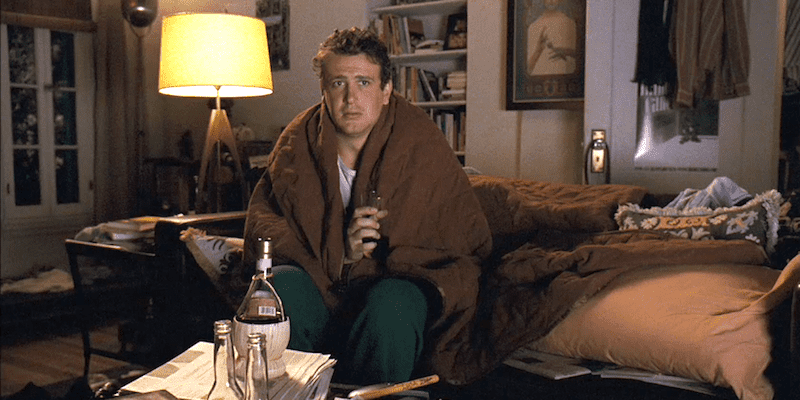I’ve always been upfront about my emotional strength when it comes to sad movies: I have none. Seriously, the water works are uncontrollable.

I’ve always been upfront about my emotional strength when it comes to sad movies: I have none. Seriously, the water works are uncontrollable.

But to be honest, I really don’t care. So what? I have feelings.
Take the Lion King for example. When Mufasa dies it’s freaking heartbreaking.
Research shows that approximately 92 percent of people have cried during a movie. Yes. I’m not the only one.
What is bothersome about this, though, is that people consider crying to be an attribute associated with weakness. Especially for men, which kills be because we are all human beings entitled to having human feelings. Crying just shows that we care, and what’s wrong with that? Nothing. It’s actually a sign of strength.
Research shows that fiction increases people’s empathetic capacity. This is because fiction gives us the opportunity to see things from a different perspective; to walk in someone else’s shoes. This makes us more understanding and less judgmental.
As said Roger Ebert:
We live in a box of space and time. Movies are windows in its walls.
They allow us to enter other minds, not simply in the sense of identifying with the characters, although that is an important part of it, but by seeing the world as another person sees it.
Basically, movies and books too, are designed to affect us on an emotional level. They are trying to get us to think and to feel. When we see or read something with intense emotional content the brain releases oxytocin, which is a potent hormone that also acts as a neurotransmitter in the brain. It’s what helps us be more selfless, empathetic and loving. It helps us connect with other people.
A Claremont Graduate School neuro-economist, Paul J. Zak, is a world-renowned expert on oxytocin. He calls it the “moral molecule.”
One of his grad students conducted an experiment where participants were shown a video from St. Jude Children’s Hospital. Half of the group saw a part of the video where a father talks about the terminal brain cancer of his young son, Ben. The other half of the group watched a part where Ben and his father visited the zoo. The part of the video where Ben’s cancer was discussed produced a much more emotional response among the group than the part where he and his father went to the zoo. Those who saw the more emotional portion of the video exhibited a 47 percent increase of oxytocin which proved to alter their behavior, but in a positive way. After watching the video, everyone was asked to make a choice that involved giving money away. Those who watched the emotional portion were much more likely to give to charity than those who didn’t.
So, when we get emotional during movies or books, we are experiencing the release of oxytocin, which is good because it connects us to what the fictional character is experiencing, making us more empathetic and understanding.
As Zak explains:
Oxytocin makes us more sensitive to social cues around us. In many situations, social cues motivate us to engage to help others, particularly if the other person seems to need our help.
…So, go see a movie and laugh and cry. It’s good for your brain, and just might motivate you to make positive changes in your life and in others’ lives as well.
People who get emotional may be ruled weak by the harsher side of society, but really, these people are caring and more compassionate than those who don’t cry.